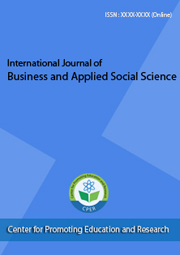Journal Menu
current
VOLUME; 7, ISSUE; 2, FEBRUARY 2021
Table of Contents
Articles
Author(s): Prof. Asoc. Dr. Besim Muhadri
Full Text
1379 1208
1379 1208
Abstract:
The Kanun of Leke Dukagjini is a collection of Albanian norms and customs with a legal-social character, in several centuries, before and after the life of Leke Dukagjini, which is thought to be a codifier. The laws of the Code have long served as social norms and as a system of self-government that prevailed in the highlands of northern Albania at the time when the region was ruled by the Ottoman Empire. The Code has a fundamental importance in the history of the Albanian people as it is an ancient document.His first written form refers to Leke Dukagjini, although it is considered to have existed long ago and to belong to the traditions of oral traditions inherited from generation to generation. The Code by Lekë Dukagjini was summarized with notes by Father Shtjefën Gjeçovi during the years 1910-1925 and was published in 1933, after Gjeçov's death. The interests of scholars but also of translators have been constant. It was first translated into Italian, then into Serbian, French, Russian, and English. The English translation, which resonated tremendously, was made in 1989 by Leonard Fox and published in New York.
Numerous scholars from different parts of the world have written about the ancient Albanian Code. One of them is the Italian professor of colonial law at the Royal University of Rome, Salvatore Vilari, who in 1940 published a long study entitled "Albanian customary legal norms-Kanun of Lekë Dukagjini" (Le consuetudini giuridiche dell'Alabania-Il Kanun di Lek Dukagjin), for which we will talk in our paper. In this paper he deals with the origin of the Code of Lek Dukagjini, the influential weight of the Dukagjins, the summary (book) of Father Gjeçov and Nopça, the territorial power of the Kanun, with the basic concepts on the Albanian tribe, the organs of the tribe, the leaders of the tribe, the blood feud and with many elements which characterize this monumental work of Albanians.






